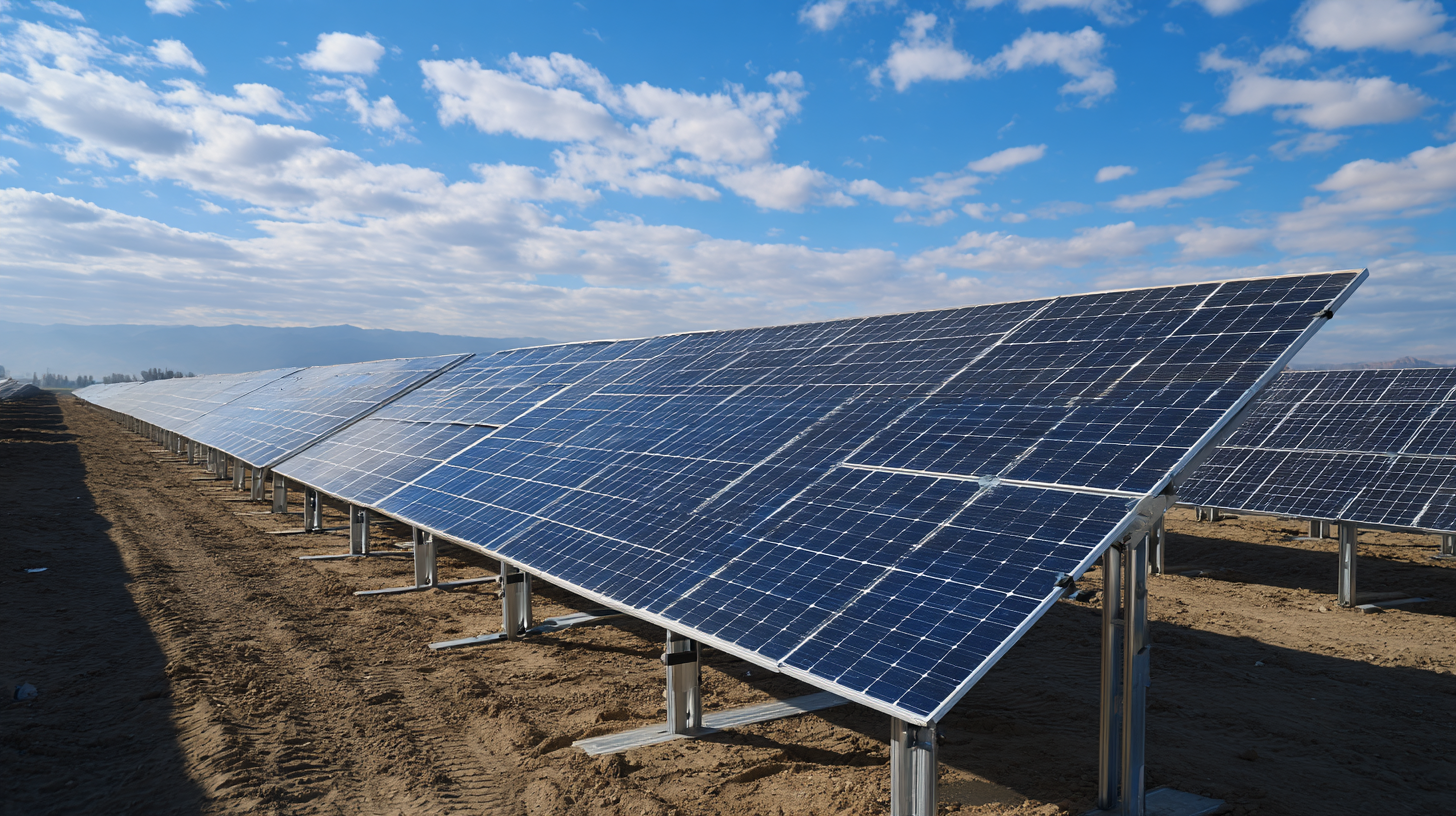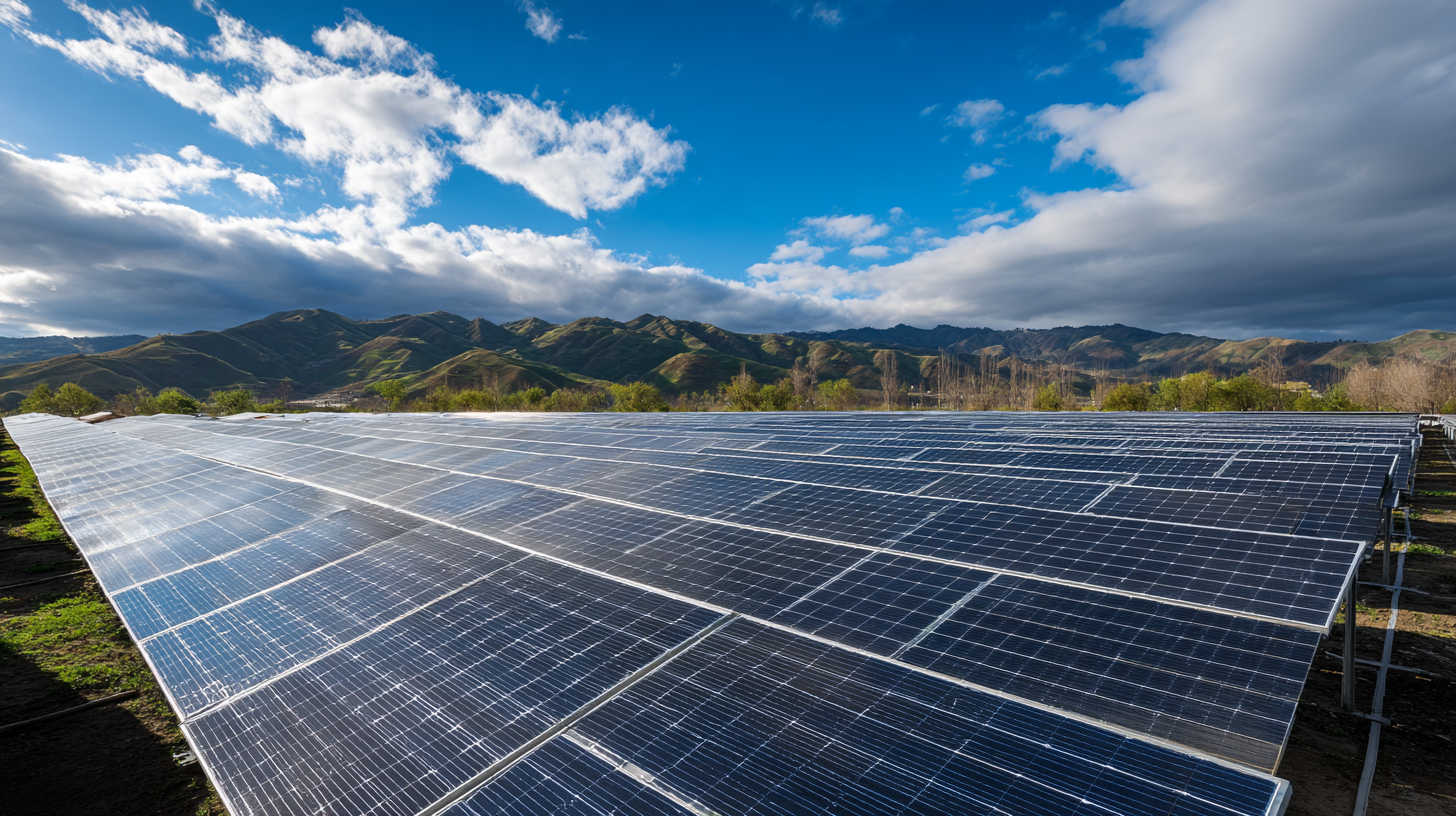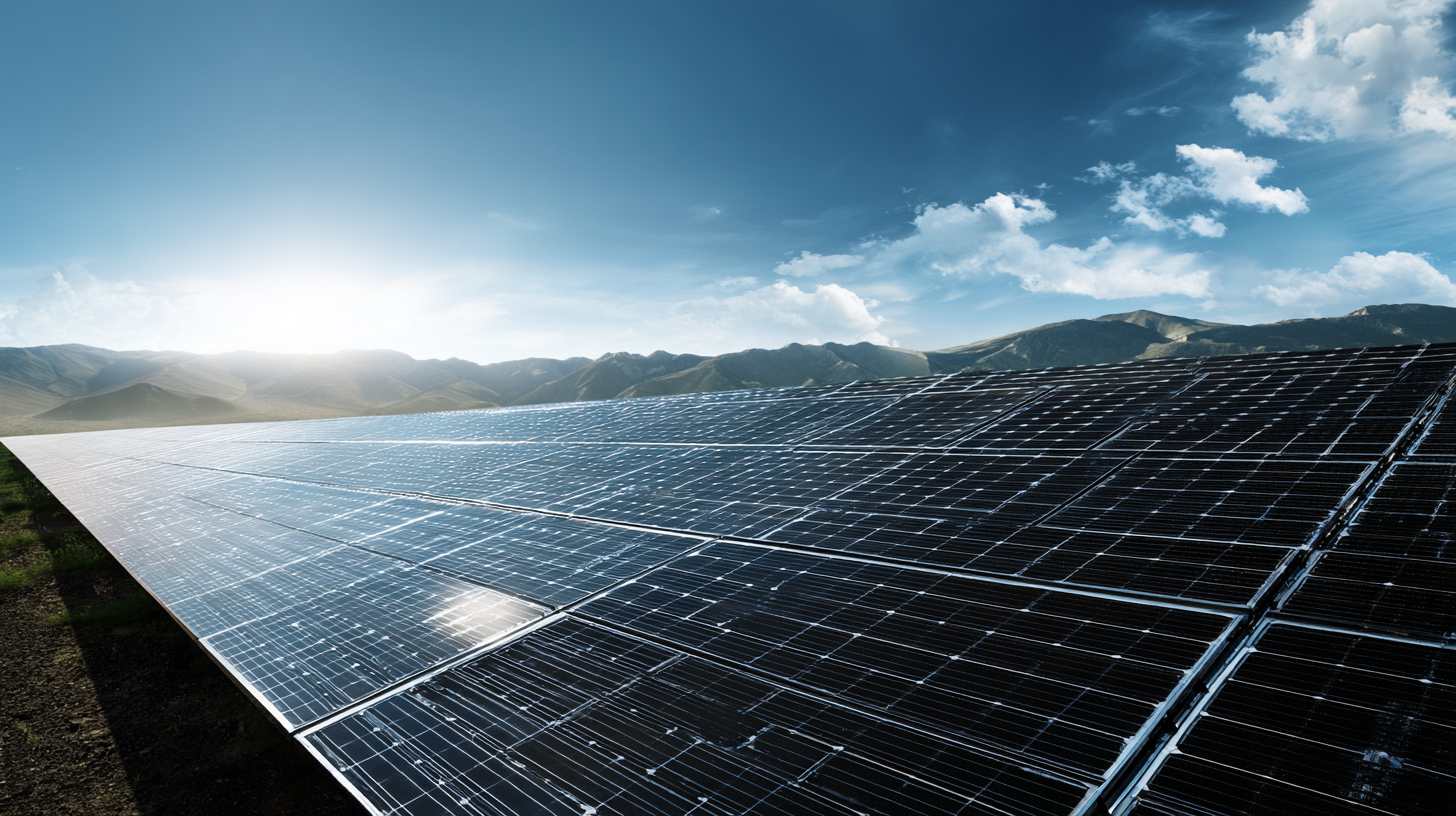
What Are the Key Features of the Best Solar Panels for Global Buyers
In recent years, the solar panel industry has experienced significant advancements, making it increasingly attractive for global buyers seeking sustainable energy solutions. As we move into 2025, understanding the key features of the best solar panels becomes crucial for consumers and businesses alike.

With an ever-growing emphasis on clean energy and environmental responsibility, the market is flooded with innovative products boasting various efficiencies, designs, and warranties. This blog will explore the essential characteristics that define high-quality solar panels, offering a comprehensive comparison to aid buyers in making informed decisions.
By delving into the latest industry trends and technological advancements, we will equip readers with the knowledge needed to navigate the diverse landscape of solar panel options available worldwide.
Key Benefits of Adopting Solar Panels for Sustainable Energy
The adoption of solar panels represents a significant leap towards sustainable energy solutions, offering numerous benefits for global buyers. One of the most notable advantages is the reduction of electricity bills. Solar panels harness sunlight to generate electricity, which can drastically decrease reliance on traditional fossil fuels. Consequently, homeowners and businesses can enjoy substantial savings, enabling them to reinvest the funds into other essential areas of their lives or operations.
Furthermore, solar panels contribute to a cleaner environment by reducing carbon footprints. By shifting to solar energy, individuals can play a pivotal role in combating climate change. This shift not only limits greenhouse gas emissions but also conserves natural resources by utilizing a renewable energy source. Additionally, as technology advances, the efficiency and affordability of solar panels continue to improve, making them an increasingly viable option for energy needs around the world. This enhances the appeal of solar energy, positioning it as a sustainable solution for a greener future.
What Are the Key Features of the Best Solar Panels for Global Buyers - Key Benefits of Adopting Solar Panels for Sustainable Energy
| Feature | Description | Benefit |
|---|---|---|
| Efficiency Rate | Percentage of sunlight converted into usable electricity. | Higher efficiency leads to more electricity generation in smaller spaces. |
| Durability | Ability to withstand harsh weather conditions. | Longer lifespan, reducing replacement costs. |
| Warranty Period | Duration of manufacturer’s guarantee for the panel's performance. | Peace of mind regarding investment and maintenance costs. |
| Cost | Initial investment required to purchase and install solar panels. | Lower electricity bills and potential tax incentives. |
| Aesthetic Design | Visual appeal and integration with building architecture. | Enhances property value and neighborhood aesthetics. |
| Environmental Impact | Reduction of carbon footprint by using renewable energy. | Contributes to global efforts against climate change. |
Understanding Different Types of Solar Panels Available in the Market
When exploring the diverse types of solar panels available in the market, understanding the different installation types is crucial for global buyers. Solar panels can primarily be installed in three ways: ground-mounted, roof-mounted, and floating installations. Each installation type has unique advantages and is conducive to various settings. For instance, ground-mounted systems are ideal for large spaces, offering flexibility in orientation and tilt, while roof-mounted systems are perfect for residential setups, helping homeowners utilize otherwise unused rooftop space. Floating solar farms, on the other hand, are increasingly popular as they utilize water bodies, reducing evaporation while also minimizing land usage.
In addition to installation types, panels are categorized based on materials, primarily focusing on photovoltaic (PV) technologies like monocrystalline, polycrystalline, and thin-film solar cells. Each material type varies in efficiency, cost, and application suitability. Monocrystalline panels offer the highest efficiency rates, making them ideal for limited spaces, while polycrystalline panels are more cost-effective and suitable for large-scale installations. Thin-film panels, although less efficient, are lighter and can be used in applications where flexibility and weight are critical factors. As the solar market continues to grow, understanding these classifications will help buyers make informed decisions tailored to their specific energy needs and conditions.
Essential Technical Specifications to Consider When Choosing Solar Panels
When considering the purchase of solar panels, understanding essential technical specifications is crucial for global buyers. One of the primary considerations is the efficiency rating. According to the National Renewable Energy Laboratory (NREL), high-efficiency panels can reach up to 22-24% efficiency, compared to traditional models that typically fall between 15-17%. This means that selecting a higher-efficiency panel can lead to more energy production in limited spaces, a vital factor for urban installations.
Another critical specification is the temperature coefficient, which indicates how much a panel's output decreases as temperatures rise. For instance, most high-quality solar panels have a temperature coefficient of around -0.3% per °C, as highlighted in a report by the International Energy Agency (IEA). This is important in regions with high ambient temperatures, as panels with lower temperature coefficients perform better under such conditions. Additionally, global buyers should assess the warranty period offered by manufacturers. A product warranty of 25 years or more often reflects the durability and reliability of the solar technology, ensuring long-term return on investment.

Comparative Analysis of Cost-Effectiveness in Solar Panel Brands
When considering solar panel brands, one of the most crucial factors for global buyers is cost-effectiveness. A recent report from the International Renewable Energy Agency (IRENA) highlighted that solar energy costs have decreased by around 89% from 2009 to 2020, making it one of the most affordable sources of energy worldwide. This considerable reduction in costs means that brands that offer durable and efficient solar panels at competitive prices are likely to become frontrunners in the market. For instance, companies like Longi Solar and Canadian Solar not only provide high-efficiency panels but also maintain cost-competitive pricing, appealing to budget-conscious consumers.
Moreover, a comparative analysis of warranty services and performance guarantees reveals another layer of cost-effectiveness. According to a study by Solar Power World, panels with robust warranties lasting 25 years, such as those from SunPower, often lead to higher long-term savings despite higher upfront costs. This results from decreased maintenance and replacement costs over the years. Additionally, brands that incorporate advanced technologies, such as bifacial and PERC (Passivated Emitter and Rear Cell) systems, could offer enhanced energy output, further justifying the investment. Ultimately, while upfront costs are important, evaluating overall lifetime savings and performance guarantees is essential when identifying the best solar panel brands for global buyers.
Emerging Innovations in Solar Panel Technology for Future Buyers
Emerging innovations in solar panel technology are revolutionizing the way global buyers approach renewable energy. With advancements in materials science, we are witnessing the rise of more efficient solar cells, such as perovskite panels, which promise greater energy conversion rates at a lower cost. These new-age panels not only enhance efficiency but also reduce the overall footprint required for solar installations, making them ideal for varied applications, from residential rooftops to large-scale solar farms.
In addition to efficiency, smart technology integration is becoming a key feature in solar panel innovation. The incorporation of Internet of Things (IoT) devices enables real-time monitoring and optimization of energy production. Buyers can benefit from smart inverters that automatically adjust to changing weather conditions and energy demands. Moreover, innovations in battery storage technology are enhancing the usability of solar energy, allowing users to store excess energy generated during sunny periods for use during cloudy days or at night, thus maximizing the overall efficiency and reliability of solar power systems.

